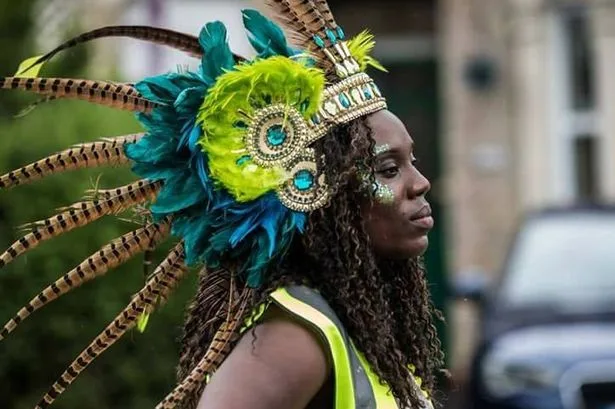Councillor Sophia James was the first black woman elected to public office in Reading. She is a wonderful advocate for social justice, a campaigner and friend. She is also a consistent campaigner and always ready to lead the charge to stand up against prejudice and racism. Some of that passion comes from her own experience and as it is Black History Month (October), I wanted to showcase a reminder of why teaching Black History matters. I couldn’t think of a better way than by re-sharing her speech at a Black Lives Matter Protest earlier this year.

Good afternoon Reading
Thank you for coming today to remember our family across the world who have died as a result of racist violence. Over 3000 black people in the UK have died in police custody, detention centres, prisons or from racist attacks and the institutions which failed to protect them.
A friend recently asked on Facebook when people first realised they were black. The experiences listed were striking. Respondents cited abusive words, physical violence and a lifetime of underestimation.
One of my earliest realisations of being black, of being different is when I was called a chocolate child in the playground and pushed. In fact being pushed and punched were normal experiences from about the age of 7 and I quickly learned to fight back. I grew up and got into a better school, where I was told I spoke very white, I was frequently threatened with exclusions and I was under-predicted grades in my GCSEs and A Levels.
In the UK education system black and black and white mixed heritage students are 3x more likely to be permanently excluded. Global education outside Black History Month is rare and under 40% of black students receive strong GCSE passes in English and Maths, less than 2 in every 5. I don’t believe that our students are not smart enough.
Throughout my life, I’ve realised this issue follows you. Walking into jobs in all white panels and realising that something ‘feels wrong’. Walking into bars and trying to buy a drink without some fool touching your hair and running away from violence, in the form of fascists, abusive racists and sometimes police. You see, we are almost 10x more likely to be stopped and searched, more likely to be given custodial sentences and systematically discriminated against in the criminal justice system and daily life. Sometimes these experiences mess up your day, and sometimes they traumatise you for months and years afterwards.
People think racism is about being nasty to someone with a different skin colour to you. Racism is structural, insidious and takes many forms. Racism may look like school policy which prevents the hairstyles of black children or a history lesson which excludes black role models. It may look like the council ignoring the safety concerns of residents in a tower block or an officer assuming that a black group of kids is doing something wrong, and stopping them. Sometimes racism is perpetrated by the government, letterboxes, piccaninnies with watermelon smiles and a hostile environment to send good people ‘home’ after decades of service to this country.
Our experiences of racism are not shocking to us. They are only shocking to people who do not experience them. It often starts with a joke, a stereotype, a lack of understanding, a complicitly silent bystander, a scapegoat, a fake news article and it ends in violence. We need action now, not platitudes, apologies or nice social media messages. No, we need action now. I believe that the teaching of black and global history in our schools is key to tackling racism, white supremacy and unconscious bias. And that education about race and racism should be a lifelong venture in the workplace and in our wider society.
Most importantly, today we take from our sadness and look forward. This is a call to action and to members of my community and our allies, I say this:
When someone makes a racist joke, you call them out.
When the government fails you, you vote them out.
And when someone dies, in police custody, you protest.
No justice. No peace.
And to end, I’d like to read something you might recognise.
You may write me down in history
With your bitter, twisted lies,
You may trod me in the very dirt
But still, like dust, I’ll rise.
Does my sassiness upset you?
Why are you beset with gloom?
’Cause I walk like I’ve got oil wells
Pumping in my living room.
Just like moons and like suns,
With the certainty of tides,
Just like hopes springing high,
Still I’ll rise.
Did you want to see me broken?
Bowed head and lowered eyes?
Shoulders falling down like teardrops,
Weakened by my soulful cries?
Does my haughtiness offend you?
Don’t you take it awful hard
’Cause I laugh like I’ve got gold mines
Diggin’ in my own backyard.
You may shoot me with your words,
You may cut me with your eyes,
You may kill me with your hatefulness,
But still, like air, I’ll rise.
Does my sexiness upset you?
Does it come as a surprise
That I dance like I’ve got diamonds
At the meeting of my thighs?
Out of the huts of history’s shame
I rise
Up from a past that’s rooted in pain
I rise
I’m a black ocean, leaping and wide,
Welling and swelling I bear in the tide.
Leaving behind nights of terror and fear
I rise
Into a daybreak that’s wondrously clear
I rise
Bringing the gifts that my ancestors gave,
I am the dream and the hope of the slave.
I rise
I rise
I rise.





